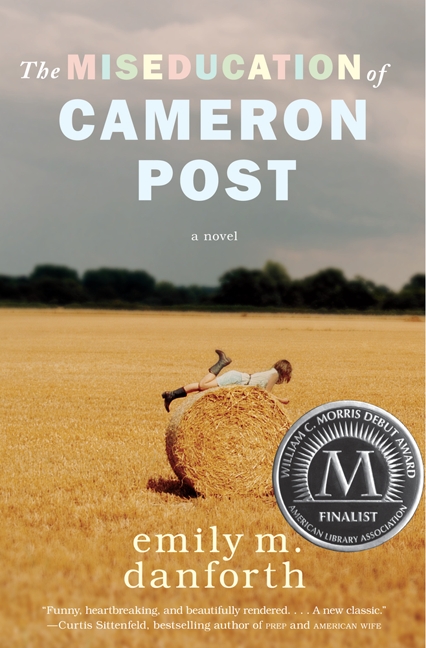 Tonight, the Delaware school board that last month voted 6-1 to remove emily m. danforth’s The Miseducation of Cameron Post from a high school reading list may reconsider their hasty action, which was not in line with district policy on book challenges. The Cape Henlopen school board voted on July 10 to follow the policy after the fact by forming a review committee, which would offer a recommendation on the book, but it’s unclear if that has happened yet.
Tonight, the Delaware school board that last month voted 6-1 to remove emily m. danforth’s The Miseducation of Cameron Post from a high school reading list may reconsider their hasty action, which was not in line with district policy on book challenges. The Cape Henlopen school board voted on July 10 to follow the policy after the fact by forming a review committee, which would offer a recommendation on the book, but it’s unclear if that has happened yet.
Since several members of the board have insisted that the removal was only due to profanity in the book and not the main character’s sexual orientation, the National Coalition Against Censorship asked respected youth literacy and censorship expert Pat Scales for her views on the value of profanity in literature. The resulting 12-page document, embedded below, was sent to the board yesterday so that members can make an informed decision if they do vote on reinstating the book.
It is difficult to select only parts of Scales’ argument to highlight here, because it’s all spot-on. But perhaps we should start with all the books — and learning opportunities — that students would miss out on if they were never allowed to read a single swear word:
A school board policy that restricts the use of books because of profanity will then exclude books commonly used in college preparatory English classes like: To Kill a Mockingbird by Harper Lee, Lord of the Flies by William Golding, The Great Gatsby by F. Scott Fitzgerald, and Native Son by Richard Wright. Colleges expect students to know these works, as well as a long list of other classical and contemporary literature. Students who are denied the opportunity to study this kind literature in high school are therefore at a great disadvantage when they apply to and enter college, or when they apply for jobs that require sophisticated verbal skills.
Then there’s the fact that literature often portrays real life and profanity is something that exists in real life, for good or ill. Here Scales borrows a quote from the poet Wallace Stevens:
English teachers forced through the pressures of censorship to use only safe or antiseptic works are placed in the morally and intellectually untenable position of lying to their students about the nature and condition of mankind.
Scales continues, recounting her own experiences guiding students through literature that often explores difficult topics and complex characters:
I have worked with middle and high school students my entire career. I have never met a student who used profanity because they read it in a book. I have known hundreds of students who have learned to analyze characters in novels because of what the characters said, or did. Sometimes these characters use profanity; sometimes they are involved in violent acts; sometimes they engage in sexual activity; and sometimes they rebel against their parents or persons of authority. Exposure to literature, from Shakespeare to Judy Blume, offers students a window into life, including its beautiful, tragic, and tawdry aspects, and a view of characters who may be villain or hero, or something in between.
Pointing out that no student was required to read Cameron Post — it was on a list of ten books from which students were to choose two at most — Scales suggests that the board invite some who did read it to talk about their reactions and how the book affected them. In fact, over the course of her 36-year career as a middle and high school librarian, Scales found that the simple act of reading and then discussing controversial works is the best way to dispel adult anxieties that lead to censorship. In a previous interview that was attached to her statement on Cameron Post, she told an American Library Association newsletter that:
The people who are banning books are often people who don’t read the books. They aren’t interested in what children think; they are only interested in telling children what to think. History tells us that mind control is the basis for all types of censorship. That’s why I think that we have an obligation to encourage children and teenagers to state their views and to support their views using examples from the books they read. Censors give a lot of power to a book. They feel that books reinforce the “evil” or “bad” parts of teenagers’ lives. A good book doesn’t tell a reader what to think. It raises issues and points out things that a reader should think about. Censors don’t know this, and don’t want to believe it.
Here’s hoping the Cape Henlopen board members respect students enough to give those who want to read, analyze, and discuss the book with their teachers and peers another chance to do so! Check out Scales’ full statement and supporting documents here:
The Miseducation of Cameron Post Follow Up and Attachments
We need your help to keep fighting for the right to read! Help support CBLDF’s important First Amendment work by visiting the Rewards Zone, making a donation, or becoming a member of CBLDF!
Contributing Editor Maren Williams is a reference librarian who enjoys free speech and rescue dogs.